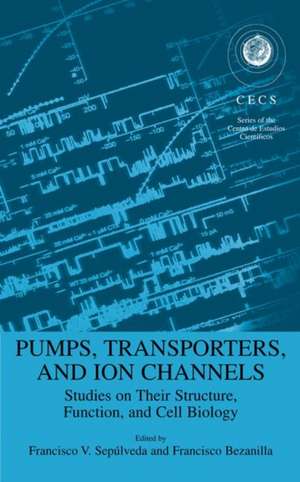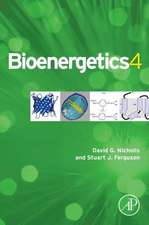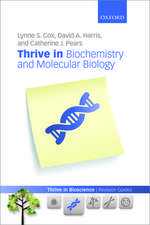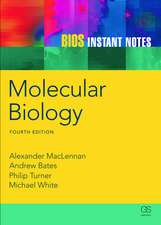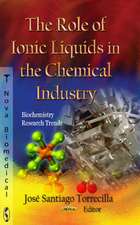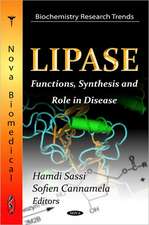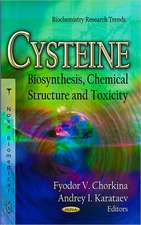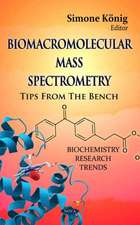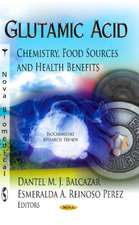Pumps, Transporters, and Ion Channels: Series of the Centro De Estudios Científicos
Editat de Francisco Sepulveda, Francisco Bezanillaen Limba Engleză Hardback – 11 ian 2005
| Toate formatele și edițiile | Preț | Express |
|---|---|---|
| Paperback (1) | 553.86 lei 38-44 zile | |
| Springer Us – 25 ian 2011 | 553.86 lei 38-44 zile | |
| Hardback (1) | 568.44 lei 38-44 zile | |
| Springer Us – 11 ian 2005 | 568.44 lei 38-44 zile |
Preț: 568.44 lei
Preț vechi: 710.55 lei
-20% Nou
Puncte Express: 853
Preț estimativ în valută:
108.79€ • 113.15$ • 89.81£
108.79€ • 113.15$ • 89.81£
Carte tipărită la comandă
Livrare economică 10-16 aprilie
Preluare comenzi: 021 569.72.76
Specificații
ISBN-13: 9780306486593
ISBN-10: 0306486598
Pagini: 165
Ilustrații: XVII, 165 p. 67 illus., 1 illus. in color.
Dimensiuni: 165 x 248 x 18 mm
Greutate: 0.54 kg
Ediția:2005
Editura: Springer Us
Colecția Springer
Seria Series of the Centro De Estudios Científicos
Locul publicării:New York, NY, United States
ISBN-10: 0306486598
Pagini: 165
Ilustrații: XVII, 165 p. 67 illus., 1 illus. in color.
Dimensiuni: 165 x 248 x 18 mm
Greutate: 0.54 kg
Ediția:2005
Editura: Springer Us
Colecția Springer
Seria Series of the Centro De Estudios Científicos
Locul publicării:New York, NY, United States
Public țintă
ResearchCuprins
Channels and Pumps Early in Evolution.- The Possible Role of Aquaporin 0 in Lens Physiology.- Central Role of the Ca2+i Regulatory Site in Ionic and Metabolic Modulation of Na+/Ca2+ Exchanger in Dialyzed Squid Axons.- Calcium Dependence of Calcium Release Channels (Ryanodine Receptors) from Skeletal and Cardiac Muscle.- Modulation of Ryanodine Receptor Channels from Rat Brain Cortex in Lipid Bilayers.- Exocytic Pathway Check Points for Functional Potassium Channels in the Plasma Membrane.- C-Termini Region Shared by ?2A, ?1B and ?3 Subunits Confer Prepulse Facilitation to Cardiac Calcium Channels.- Differential Expression of Ca Channels and Synaptic Transmission in Normal and Ataxic Knock-Out Mice.- Investigating the Modular Basis of BK Channel Activation by Calcium.- Helical Nature of the Voltage Sensor.- Peptide Toxins as Conformational Probes for K-Channels.- Molecular Participants in Voltage-Dependent Gating.- CA2+ Dynamics at Nerve-Terminal Active Zones Monitored by Endogenous KCa Channels.- Fine Tuning of Excitability by KCa Channels in Mudpuppy Parasympathetic Neurons.- Twinkle Twinkle Little Spark: Out of Tune Potassium Channels.- A CLC-2-Like Chloride Conductance in Drosophila Photoreceptors.
Notă biografică
After training as a Biologist at the University of Chile, Santiago, Francisco V. Sepúlveda took his Ph.D. at the University of Lausanne in Switzerland (1974-1978), with a Zyma-Nyon (Switzerland) fellowship. Postdoctoral training was at the AFRC Institute of Animal Physiology and Genetics Research, Babraham, Cambridge, UK, from 1978 to 1980. After a stay in the University of Nice, France, as Maître de confèrences associè at the Faculty of Sciences, he returned to Babraham, Cambridge, as Senior Scientific Officer in 1979. While there he was promoted to Principal Scientific Officer and, within the Individual Merit Award national scheme, to Senior Principal Scientific Officer in 1990. In 1994 he returned to Chile as Professor of the Faculty of Medicine, at the Universidad de Chile and at the Centro de Estudios Científicos de Santiago. He has received the Presidential Chair in Science (Chile) 1996-1998, the University of Chile Rector's medal and an International Fellowship of the Howard Hughes Medical Institute (1997-2001). In March 2000, he moved to Valdivia, Chile, to join the new Centro de Estudios Científicos. His current work is aimed at understanding the cellular and molecular mechanisms of electrolyte and water transport and the regulation of cell volume. He has over 100 papers published in international scientific journals.
After earning his B.S., M.S., and PhD. from the Catholic University of Santiago, Chile, Francisco Bezanilla did his doctoral training from 1969-1971 at the Laboratory of Biophysics, NINCDS at the National Institutes of Health in Bethesda, MD as well as with the Department of Physiology at the University of Rochester. Dr. Bezanilla began his career as an Instructor in Physics with the School of Medicine of Catholic University, Santiago and has since taught at the University of Rochester, the University of Chile, the University of Pennsylvania and UCLA, where he is currently aprofessor of Neuroscience. Dr. Bezanilla has been honored multiple times for his work in biophysics. He was the recipient of the Kenneth S. Cole Award in 1990, appointed as Appointed as Susumu Hagiwara Professor of Neuroscience in 1995, and was elected to the Latin American Academy of Sciences in 2002. He is a member of Centro de Estudios Cientificos,Valdivia, Chile, the Brain Research Institute and is a fellow of the Biophysical Society. His current work includes the biophysics of excitation, specifically the structure function in voltage dependent Ionic Channels. Dr. Bezanilla has over 100 papers published in international scientific journals.
After earning his B.S., M.S., and PhD. from the Catholic University of Santiago, Chile, Francisco Bezanilla did his doctoral training from 1969-1971 at the Laboratory of Biophysics, NINCDS at the National Institutes of Health in Bethesda, MD as well as with the Department of Physiology at the University of Rochester. Dr. Bezanilla began his career as an Instructor in Physics with the School of Medicine of Catholic University, Santiago and has since taught at the University of Rochester, the University of Chile, the University of Pennsylvania and UCLA, where he is currently aprofessor of Neuroscience. Dr. Bezanilla has been honored multiple times for his work in biophysics. He was the recipient of the Kenneth S. Cole Award in 1990, appointed as Appointed as Susumu Hagiwara Professor of Neuroscience in 1995, and was elected to the Latin American Academy of Sciences in 2002. He is a member of Centro de Estudios Cientificos,Valdivia, Chile, the Brain Research Institute and is a fellow of the Biophysical Society. His current work includes the biophysics of excitation, specifically the structure function in voltage dependent Ionic Channels. Dr. Bezanilla has over 100 papers published in international scientific journals.
